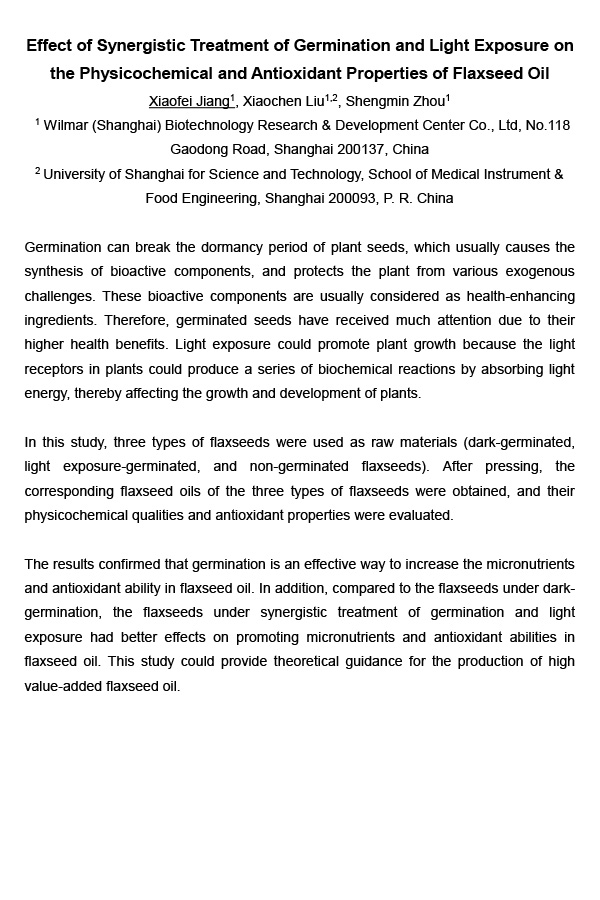Germination can break the dormancy period of plant seeds, which usually causes the synthesis of bioactive components, and protects the plant from various exogenous challenges. These bioactive components are usually considered as health-enhancing ingredients. Therefore, germinated seeds have received much attention due to their higher health benefits. Light exposure could promote plant growth because the light receptors in plants could produce a series of biochemical reactions by absorbing light energy, thereby affecting the growth and development of plants.
In this study, three types of flaxseeds were used as raw materials (dark-germinated, light exposure-germinated, and non-germinated flaxseeds). After pressing, the corresponding flaxseed oils of the three types of flaxseeds were obtained, and their physicochemical qualities and antioxidant properties were evaluated.
The results confirmed that germination is an effective way to increase the micronutrients and antioxidant ability in flaxseed oil. In addition, compared to the flaxseeds under darkgermination, the flaxseeds under synergistic treatment of germination and light exposure had better effects on promoting micronutrients and antioxidant abilities in flaxseed oil. This study could provide theoretical guidance for the production of high value-added flaxseed oil.
